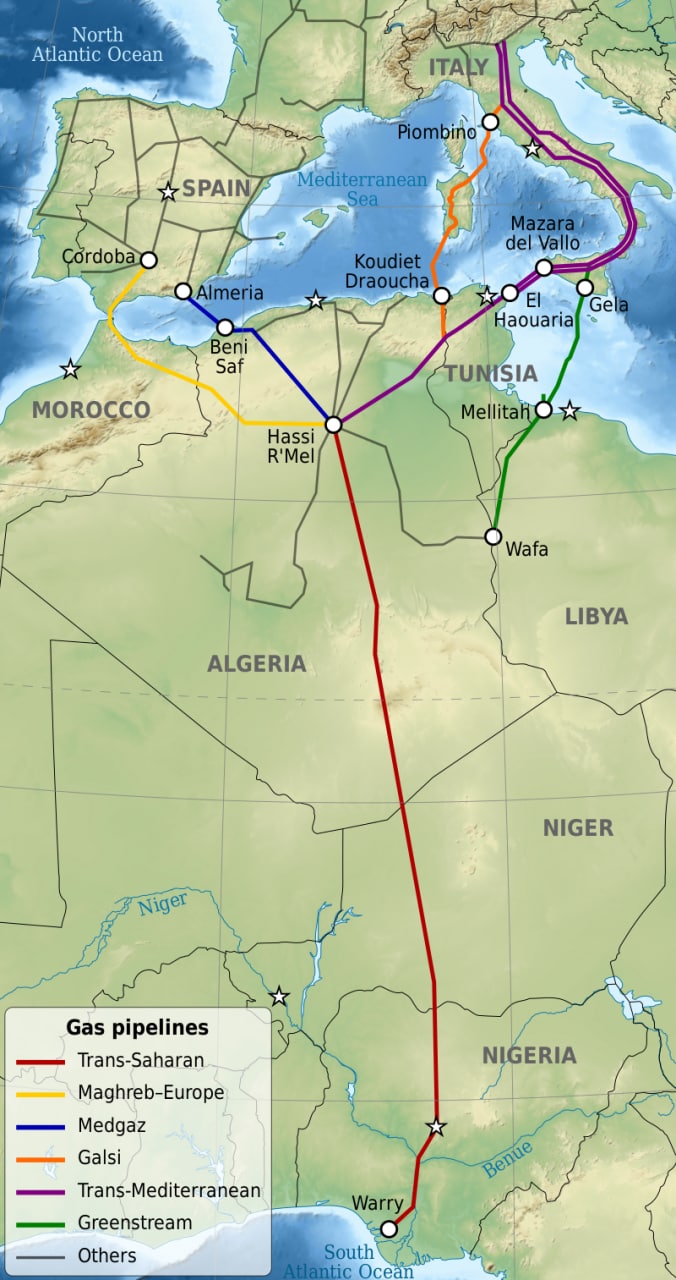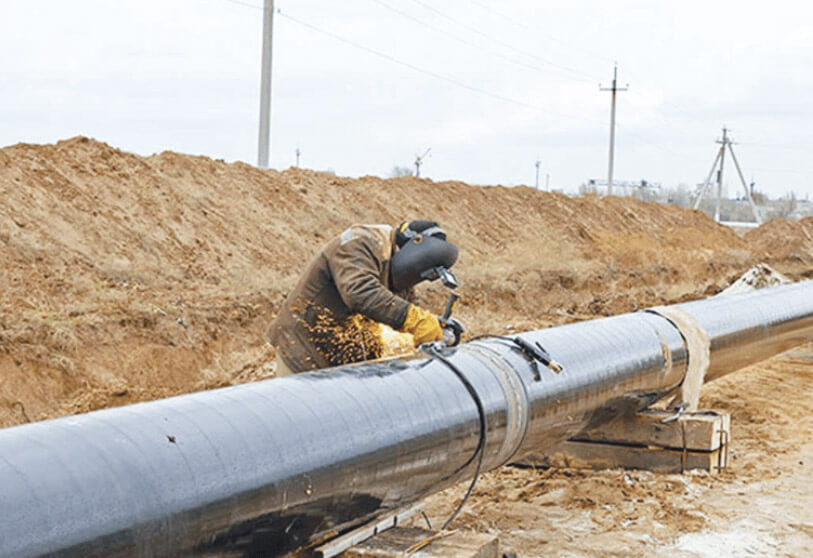Algeria, Niger, and Nigeria on Thursday signed an agreement to begin construction of the Trans-Saharan gas pipeline, a move that would benefit the European Union (EU) as it seeks to reduce its dependency on Russian energy.
Algerian Energy Minister Mohammed Arkab said the three sides agreed to revive the decades-old initiative after two rounds of talks in February and June. Calling the pipeline a “strategic project,” Arkab noted that construction is set to start soon, as all sides have made “remarkable advances” in reviving the project.
The agreement was signed after a meeting between Algerian President Abdelmadjid Tebboune and Nigeria and Niger’s energy ministers in Algiers.
Europe is planning to no longer rely on Russia for gas, and will look to Africa. This means funding for the Nigeria-Morocco coastal pipeline and Trans-Saharan Pipeline from Nigeria to Algeria might not be hard to come by again. Over 30 billion SCF of gas would be exported yearly. pic.twitter.com/LdhdOOErrC
— ᴏnowvo_ᴏᴍᴀsᴏʀᴏ ᴀʟɪ ᴏᴠɪᴇ ™☤🇳🇬 (@OvieNews) March 8, 2022
The idea of constructing a pipeline that traverses across the Sahara desert was proposed over 40 years ago, and the three countries even signed a deal in 2009 to start construction. However, the project was delayed following the worsening security situation in the Sahel and the rise of terrorist groups.
The Trans-Saharan pipeline is expected to cost around $13 billion and, once completed, would stretch for almost 4,000 kilometres, starting from Warri in southern Nigeria to Hassi R’Mel in Algeria. According to estimates, the pipeline can transfer up to 30 billion cubic metres of natural gas annually.
Talks to revive the project restarted following Russia’s invasion of Ukraine on February 24. In June, officials from all three sides agreed to establish a task force to research the project’s feasibility.

Nigerian Petroleum Minister Timipre Sylva said the EU would fund the project. He added that the pipeline would bring much-needed revenue for Nigeria, Niger, and Algeria and help Europe diversify its energy sources. After reaching Algeria, the gas can be transported to Spain via Morocco through the Maghreb-Europe pipeline and to Italy via Tunisia through the Trans-Mediterranean pipeline.
The EU imports around 40% of its natural gas from Russia and has been trying to reduce its dependence on Russian energy following the war. To this end, the EU signed a deal with Azerbaijan to increase gas exports from 8 billion to 20 billion cubic metres by 2027. Likewise, Brussels inked an agreement with Egypt and Israel last month to transport Israeli natural gas to Europe via Egypt. Moreover, European countries are signing bilateral energy deals with major natural gas-producing countries.
Earlier this month, France signed an energy deal with the United Arab Emirates to increase Abu Dhabi’s energy supply to Paris. Similarly, Italy signed a $4 billion energy deal with Algeria, which has replaced Russia as Italy’s largest energy supplier.

